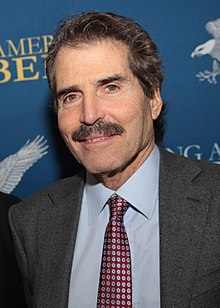Introduction
| Part of a series on |
| Libertarianism |
|---|
Libertarians advocate for the expansion of individual autonomy and political self-determination, emphasizing the principles of equality before the law and the protection of civil rights, including the rights to freedom of association, freedom of speech, freedom of thought and freedom of choice. They generally support individual liberty and oppose authority, state power, warfare, militarism and nationalism, but some libertarians diverge on the scope and nature of their opposition to existing economic and political systems. (Full article...)
Selected article
Left-libertarianism (or left-wing libertarianism) names several related, but distinct approaches to political and social theory which stress both individual freedom and social equality. In its classical usage, libertarianism is a synonym for anti-authoritarian varieties of left-wing politics, e.g. libertarian socialism, which includes anarchism and libertarian Marxism, among others.
Left-libertarianism can also refer to political positions associated with academic philosophers Hillel Steiner, Philippe Van Parijs and Peter Vallentyne that combine self-ownership with an egalitarian approach to natural resources. While maintaining full respect for personal property, they are skeptical of or fully against private property, arguing that neither claiming nor mixing one's labor with natural resources is enough to generate full private property rights and maintain that natural resources (land, oil, gold and vegetation) should be held in an egalitarian manner, either unowned or owned collectively. Those left-libertarians who support private property do so under the condition that recompense is offered to the local community. Many schools of thought are communist, advocating the eventual replacement of money with labor vouchers or decentralized planning.
On the other hand, left-wing market anarchism, which includes Pierre-Joseph Proudhon's mutualism and Samuel Edward Konkin III's agorism, appeals to left-wing concerns such as egalitarianism, gender and sexuality, class, immigration and environmentalism within the paradigm of a socialist free market. In the United States, the word "libertarian" has become associated with right-libertarianism after Murray Rothbard and Karl Hess reached out to the New Left in the 1960s. However, until then political usage of the word was associated exclusively with anti-capitalism and in most parts of the world such an association still predominates.
Selected quote
| “ | Though he expresses a classical liberal doctrine, Humbdolt is no primitive individualist, in the style of, for example, Rousseau. Rousseau extols the savage who "lives within himself," but Humboldt's vision is entirely different. He sums up his remarks, saying that
the whole tenor of the ideas and arguments unfolded in this essay might fairly be reduced to this, that while they would break all fetters in human society, they would attempt to find as many new social bonds as possible. The isolated man is no more able to develop than the one who is fettered. And he in fact looks forward to a community of free association without coercion by the state or other authoritarian institutions, in which free men can create, inquire, and achieve the highest development of their powers. In fact, far ahead of his time, he presents an anarchist vision that is appropriate perhaps to the next stage of industrial society. We can perhaps look forward to a day when these various strands will be brought together within the framework of libertarian socialism, a social form that barely exists today, though its elements can perhaps be perceived, for example, in the guarantee of individual rights that has achieved so far its fullest realization—though still tragically flawed—in the Western democracies; in the Israeli kibbutzim; in the experiments of workers' councils in Yugoslavia; in the effort to awaken popular consciousness and create a new involvement in the social process, which is a fundamental element in the Third World revolutions that coexists uneasily with indefensible authoritarian practices. To summarize, the first concept of the state that I want to establish as a point of reference is classical liberalism. Its doctrine is that state functions should be drastically limited. But this familiar characterization is a very superficial one. More deeply, the classical liberal view develops from a certain concept of human nature one that stresses the importance of diversity and free creation, and therefore this view is in fundamental opposition to industrial capitalism with its wage slavery, its alienated labor, and its hierarchic and authoritarian principles of social and economic organization. At least in its ideal form, classical liberal thought is opposed to the concepts of possessive individualism, that are intrinsic to capitalist ideology. For this reason, classical liberal thought seeks to eliminate social fetters and to replace them with social bonds, and not with competitive greed, predatory individualism, and not, of course, with corporate empires-state or private. Classical libertarian thought seems to me, therefore, to lead directly to libertarian socialism, or anarchism if you like, when combined with an understanding of industrial capitalism. |
” |
| — Noam Chomsky (1928) Government in the Future at the Poetry Center (1970) |
Selected picture
 |
General images
Selected biography -
John Frank Stossel (born March 6, 1947) is an American libertarian television presenter, author, consumer journalist, political activist, and pundit. He is known for his career as a host on ABC News, Fox Business Network, and Reason TV.
Stossel's style combines reporting and commentary. It reflects a libertarian political philosophy and views on economics which are largely supportive of the free market. He began his journalism career as a researcher for KGW-TV, was a consumer reporter at WCBS-TV in New York City, and then joined ABC News as a consumer editor and reporter on Good Morning America. Stossel became an ABC News correspondent, joining the weekly news magazine program 20/20, and later became a co-anchor. In October 2009, Stossel left ABC News to join the Fox Business Network. He hosted a weekly news show on Fox Business, Stossel, from December 2009 to December 2016. In 2019, Stossel launched StosselTV, an online channel distributed on social media. (Full article...)
Related portals
Parent portals
Socio-political portals
Topics
Categories
Points of interest
Associated Wikimedia
The following Wikimedia Foundation sister projects provide more on this subject:
-
 Commons
Commons
Free media repository -
 Wikibooks
Wikibooks
Free textbooks and manuals -
 Wikidata
Wikidata
Free knowledge base -
 Wikinews
Wikinews
Free-content news -
 Wikiquote
Wikiquote
Collection of quotations -
 Wikisource
Wikisource
Free-content library -
 Wikiversity
Wikiversity
Free learning tools -
 Wiktionary
Wiktionary
Dictionary and thesaurus





































You must be logged in to post a comment.